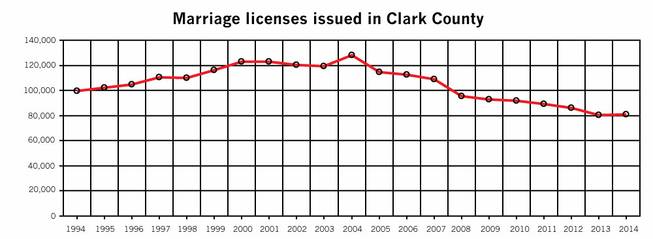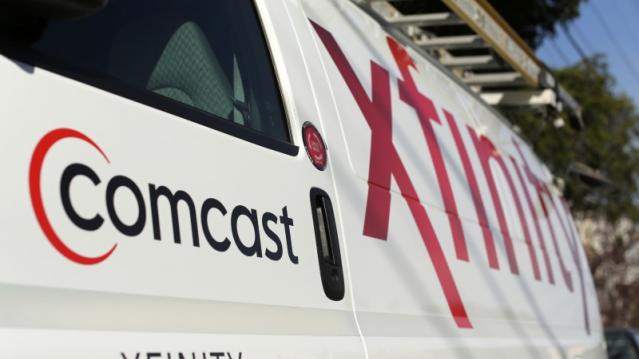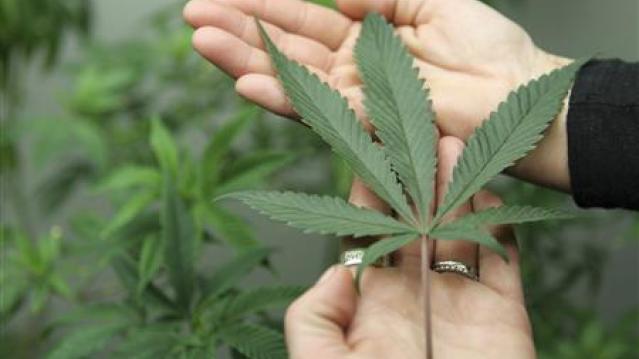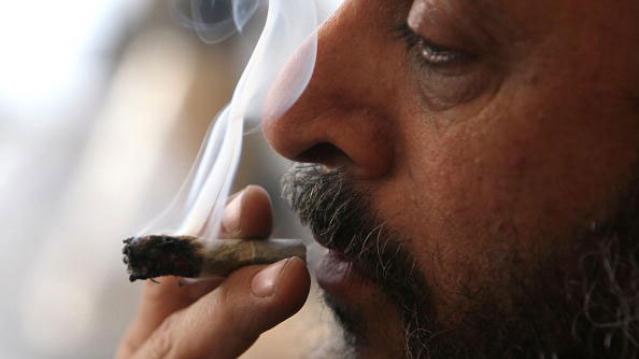They’re Leaving Las Vegas: Fewer I Do’s in Last Decade

When it comes to destination weddings, Las Vegas has lost that loving feeling. The Las Vegas Sun reports that the wedding rate in Sin City has plummeted 37 percent in the past decade—nearly 47,000 fewer couples got married in 2014 than in 2004.
By comparison, 2004 was a boom year for weddings in Sin City. There were 128,000 weddings that year—including Britney Spears’ 55-hour marriage to Jason Allen Alexander at A Little White Wedding Chapel.

Related: Marriage?? Young Americans Aren’t Even Shacking Up
Who knows why gambling on love in Sin City has become a losing bet? Perhaps the dip reflects a national trend of millennials waiting to tie the knot or choosing to stay single. The marriage rate in the U.S. neared a record low in 2015 and is expected to drop further in 2016. Then there’s the expense. According to the TheKnot, the average wedding cost (excluding the honeymoon) is $31,213, with many couples looking for more unusual venues.
Clark County Clerk Lynn Goya, who took office in January, wants to change that trend in Vegas. The current fee for a marriage license in Las Vegas is $60, but Goya is asking for a $14 increase in the cost of wedding licenses to support marketing efforts targeting engaged couples. Last year 81,000 weddings happened in Las Vegas—and she’s hoping that wedding vow renewals and gay weddings will help boost those numbers even more. In New York, the legalization of gay marriage in 2011 led to an estimated $259 million in spending and $16 million in revenues for New York City.
Related: The $2.6 Billion Gay Wedding Boom
Then again it may be hard for Las Vegas to shake that quickie, drive-thru wedding image. Sin City has always had an illustrious history of celebrity weddings, with many more misses than hits: Cher’s nine-day union to rocker Gregg Allman in 1975, Mia Farrow and Frank Sinatra in 1966, Demi Moore and Bruce Willis in 1987, Richard Gere and Cindy Crawford in 1991, and Angelina Jolie and Billy Bob Thornton in 2000. On the bright side, there’s Paul Newman and Joanne Woodward’s marriage, which endured for 50 years, Jon Bon Jovi and his wife, Dorothea’s 1987 wedding day, and Kelly Ripa and Mark Consuelo’s union from 1996, which is still standing.
Comcast to Cut the Cord with Time Warner

Comcast is dropping its merger with Time Warner after a year of regulatory pushback, according to Bloomberg. The news wire's unnamed sources say there will be an announcement tomorrow.
In today's changing media landscape it is not really clear what the preemptive breakup of a media megacorp (formed from mere media titans) will mean for consumers, especially in the face of Verizon's push to slim down its bundled offerings, the new ala carte service from HBO and the continued expansion of Netflix's original programming. As more and more people cut the cord, the market for traditional cable TV is eroding, and more consumers opt simply for an Internet connection.
Even without that, Comcast dropping its deal probably will have no impact at all for the average cable subscriber, given the already segregated monopolies allowed individual cable companies. So, unless you own stock in either of these companies, this is pretty much just more status quo in a rapidly changing market.
Can Low Self-Control Turn You Into Edward Snowden?

Be very wary if your employer asks you to take a test and then says please put on this cap. The cap could have sensors measuring your “self-control,” which researchers at Iowa State University have connected to—cybersecurity.
Yup—this wasn’t about eating the last cookie, having sex with a stranger, or taking a hit from some unknown new drug just because your friend said it was an amazing experience. The test measures how long someone hesitates before doing something risky or wrong.
Hmm. Maybe I’ll wait a few seconds before robbing that jewelry store! If they waited, the researchers determined that the employees were considering the consequences of their actions and therefore had higher self-control than those who simply filled their duffle bag with whatever bling was in sight.
Those with higher self-control were deemed better cyber security risks than the low self-control group.
But who knows? Maybe the high group was just casing the joint and calculating how much they could carry without getting caught. Or maybe they were searching for the largest unflawed diamond in the case that could be hidden in their pocket!
So much for brainwaves.
These Students Are Making Even More Than They Expect After Graduation
College students who major in STEM fields generally know that they can make more money than their peers once they graduate, but they don’t know how much more.
Turns out, those students majoring in science, technology, engineering and math, actually have starting salaries that are higher than expected, according to a new report by the National Association of Colleges and Employers.
Engineering majors, for example, expect to earn $56,000, but actually receive 15.5 percent more than that, with starting salaries average nearly $65,000. Computer Science majors expect to make around $51,000, but receive 22 percent for an average starting salary of $62,000.
Chemistry majors have the largest gap between expectations and reality: They expect to earn an average of $39,000 but take home an average $58,000 in their first year, a 51 percent increase.
Related: The Closing of the Millennial Mind on Campus
The typical college graduate in 2014 received a starting salary of $48,000. Liberal arts and humanities majors had the lowest starting salary, with an average of just $39,000, according to NACE.
Not only do STEM majors enjoy higher salaries, but they can also expect more job security and better job prospects. All of the top 25 jobs recently compiled by U.S. News and World Report fell into either a science- or math-based discipline.
Still, not everyone has the interest or aptitude to excel in a STEM career. A third of those who begin their college career majoring in those fields end up transferring to a difference study area, according to a recent report by RTI International.
Will Obama Send a Smoke Signal About Weed?

The resignation of Michele M. Leonhart, chief of the Drug Enforcement Administration, just one day after 4/20 -- which is sort of Thanksgiving for stoners -- offers President Obama an opportunity to replace her with someone who shares his relatively benign view of marijuana.
The right appointment might also be a gift to Hillary Rodham Clinton since it would signal to younger voters that it's not just libertarian-leaning Republicans like Senator Rand Paul of Kentucky who want to decriminalize the use of pot.
Representative Early Blumenauer, an Oregon Democrat, told The New York Times that Obama should appoint someone who "understands the federal approach to marijuana isn't working."
Related: How to Stop Cyber Attacks: Let Workers Smoke Pot
The flashpoint that led to the departure of Leonhart after a 35-year career at the D.E.A. was a congressional hearing that revealed agency agents in Colombia had taken part in parties with prostitutes paid by drug cartels. But Leonhart, who has lumped marijuana in with crack, meth and heroin, found herself at odds with the President, who has called pot no more dangerous than alcohol.
“Hopefully this is a sign that the Reefer Madness era is coming to an end at the D.E.A.,” Mason Tvert, the director on communications at the Marijuana Policy Project, told Bloomberg Politics.
How to Stop Cyber Attacks: Let Workers Smoke Pot

What’s true for the government is true for business. FBI Director James Comey thinks you can’t hire top tech talent with a ban on weed. It all started in the Reagan administration, which imposed a no-hire policy for applicants who toked up within the past three years. Good luck with that.
In 2014, Comey raised the issue during a speech: “A lot of the nation’s top computer programmers and hacking gurus are also fond of marijuana. I have to hire a great workforce to compete with those cyber criminals and some of those kids want to smoke weed on the way to the interview.”
That’s not the only reason the government can’t hire competent programmers and white hat hackers. They come at a high price, there’s a shortage, and they hate red tape and bureaucratic annoyances. For some lawmakers, though, it’s easier to get lost in the weed than try to reform the federal hiring process. That’s why Gerry Connolly (D-VA) and Earl Blumenauer (D-OR) have two proposals in the House requiring info from the intelligence director on how classifying pot as Schedule 1 narcotic crimps the feds recruiting efforts.
